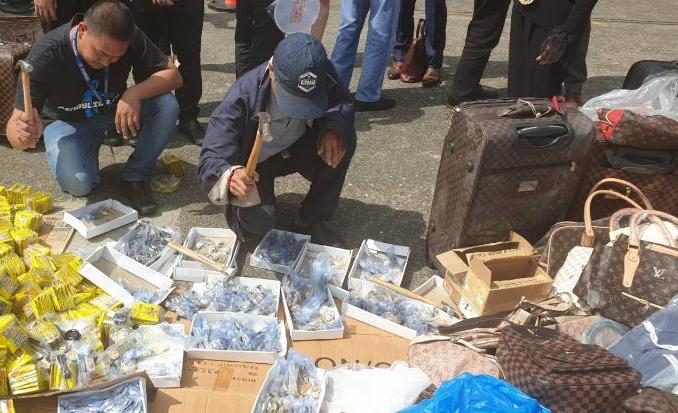SUMMARY
This is AI generated summarization, which may have errors. For context, always refer to the full article.

MANILA, Philippines – The European Union (EU) removed the Philippines from its priority watch list of countries concerning counterfeiting and piracy.
In a statement, the Intellectual Property Office of the Philippines (IPOPHL) said it “has succeeded in weeding the country” out of the watch list, which “ranks economies based on the level of concern and threat” to the EU’s intellectual property right (IPR) holders.
The agency cited the findings in the European Commission’s biennial “Report on the protection and enforcement of intellectual property rights in third countries” released last January 8. The European Commission is the EU’s executive branch.
The EU delisted the Philippines from the Priority 3 category – the least concerning among 3 categories – due to the “very few complaints received from stakeholders and the increase in the relative importance of other countries for EU right holders.”
The country had been in Priority 3 since 2015, after a downgrade from Priority 2, explained IPOPHL.
“Due to the few complaints, IPR holders in EU only deemed it strategic to put the Philippines aside and give more importance in looking after other countries who have an increasing potential to let loose on counterfeiting and piracy activities,” said IPOPHL officer-in-charge Director General Teodoro Pascua.
IPOPHL credits this feat to “extensive and sustained efforts to keep counterfeiting and piracy at bay.”
IPOPHL disputes ‘no improvement’
But IPOPHL responded to observations in the same European Commission report saying that the intellectual property situation in the country “has not improved over the last years.”
The report cited 4 joint studies by the Organisation for Economic Cooperation and Development and the EU Intellectual Property Office, which said the Philippines is among the “provenance economies” that flooded the EU with counterfeits in some product categories such as leather articles, handbags, pharmaceuticals, footwear, games, toys, and sports equipment.
A provenance economy, explained IPOPHL, is a source of a counterfeit good, whether it is a producer or a point of transit.
IPOPHL disputed these findings, saying the first 3 joint studies “used a single set of data” and the data that were used “even dates back to 2011-2013.”
Then, while the 4th joint study published in 2019 “aimed to recalibrate the findings with more updated data and an enhanced methodology,” IPOPHL said the results “were presented in ways that make them unsuitable for comparison.”
“In fact, the previous [European Commission] watch list report, released in 2018, even commended the country for efforts we have been amplifying since then,” said Pascua.
He highlighted IPOPHL’s push to amend the Intellectual Property Code of 1998, continuous efforts to champion several IP initiatives in the Association of Southeast Asian Nations, and the launch of the National IP Strategy in December 2019.
The agency also said it has taken steps to fast-track the decision-making in IPR cases by collaborating with the judiciary to revise the current special rules on IP litigation.
In addition, Pascua noted that the 2019 European Commission report’s coverage was only up to August 31, 2019.
“We expect that once IPOPHL’s and NCIPR’s (National Committee on Intellectual Property Rights) efforts in the last quarter of 2019 are factored in, including the manifold projects and programs we intend to take in the next few years, the European Commission will give a more positive evaluation of the Philippines in its next report,” he added. – Rappler.com
Add a comment
How does this make you feel?
There are no comments yet. Add your comment to start the conversation.